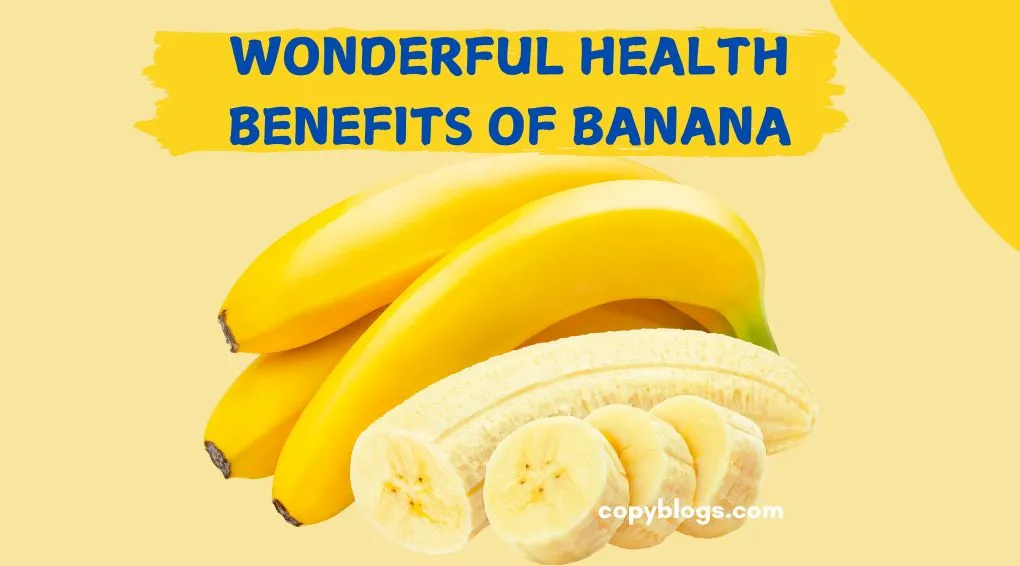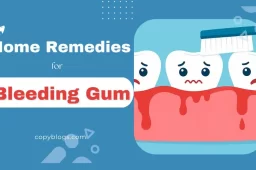
The Amazing Health Benefits of Banana: A Complete Health Guide
- February 01, 2025
- by
- Shanaya
The health benefits of banana are amazing. Bananas are a popular fruit. They are soft, sweet and packed with essential nutrients. With a creamy texture and mild flavor, bananas are easy to add to daily meal or snack.
Banana Nutrition Facts
Nutritional Content of a Banana
A medium banana (about 7–8 inches long) has around 105 calories. It is rich in carbohydrates (27g), including 14.4g of natural sugars. This fruit has 3.1g of fiber (10% DV) and very little fat (0.4g). It also contains 1.3g protein.
Key nutrients in a medium banana:
- Potassium: 422mg (9% DV) helps the heart and muscles stay healthy.
- Vitamin C: 10.3mg (12% DV) to support the immune system.
- Vitamin B6: 0.43mg (25% DV) for brain and nerve support.
- Magnesium: 31.9mg (8% DV) helps relax muscles and gives you energy.
- Folate: 23.6mcg (6% DV) supports cell growth and is important during pregnancy.
Health Benefits of Bananas
Digestive Health
One of the top banana benefits is improving gut health. Bananas are rich in dietary fiber. This nutrition helps maintain regular bowel movements and prevent constipation.
- Soluble fiber helps slow down digestion and control blood sugar. It also lowers cholesterol and keep you feeling full.
- Insoluble fiber adds bulk to stool. It speeds food passage through intestines. This aids digestive health and reduces bloating.
Unripe bananas contain resistant starch. This starch doesn’t get digested right away but feeds the good bacteria to the gut. This keeps your digestion and immune system healthy.
If your stomach feels upset, bananas are a gentle food to eat. They’re part of the BRAT diet (Bananas, Rice, Applesauce, Toast), which helps when you have diarrhea, vomiting, or nausea. Bananas also aid hydration and calm the stomach.
Heart Health and Blood Pressure
Bananas are rich in potassium, which is good for heart. Potassium helps balance sodium in the body. It may lower high blood pressure and reduce the risk of stroke.
Studies show a potassium-rich diet can cut heart disease risk by up to 25%. Research found higher potassium intake reduce the risk of heart diseases.
Bananas also have magnesium, which helps keep your heartbeat steady and relaxes your blood vessels. Together with potassium, it aids heart health and lowers high blood pressure (hypertension).
Blood Sugar Control and Diabetes
Bananas have a low to moderate glycemic index (GI):
- Unripe bananas: GI 47 (low)
- Ripe bananas: GI 57 (moderate)
The glycemic load (GL) in a medium banana is 7–9. Fiber and resistant starch help the body absorb sugar more slowly. This stops blood sugar from rising too fast.
People with diabetes can still eat bananas but in small amounts. It’s best to eat a banana with protein or healthy fat like peanut butter or Greek yogurt. This keeps blood sugar more steady.
Notes:
- Glycemic index (GI): A score that shows shows how quickly a food raises blood sugar. Low GI foods cause a slower rise; moderate GI foods cause a moderate rise.
- Glycemic load (GL): A measure of how much sugar in one serving will impact blood sugar. Lower GL means less impact.
Weight Loss and Satiety
Bananas can help with weight control. One banana has about 105 calories and a lot of fiber. The fiber helps you feel full, so you’re less likely to overeat.
Studies show that eating more fiber can help lose weight.
A banana snack gives you key nutrients without much calories. It benefits for weight control.
Energy Boost and Athletic Performance
Athletes often choose bananas for quick energy. They have glucose, fructose, and sucrose. These natural sugars give a fast boost. Unlike processed snacks, bananas do not cause a crash.
Electrolytes (like potassium and magnesium) help prevent muscle cramps and boost recovery. Studies show bananas may improve endurance and ease muscle soreness. They’re great before or after a workout.
Immunity and Disease Prevention
Bananas support the immune system with vitamin C and antioxidants. A medium banana gives about 12% of daily vitamin C needs. This vitamin enhances white blood cells and fights infections.
They also have dopamine and catechins. These antioxidants reduce inflammation and fight oxidative stress. They may help prevent chronic diseases such as cancer, heart disease, and brain issues.
Benefits of Banana for Skin and Hair
Bananas have antioxidants and vitamin C that are good for your skin. They help make collagen and protect skin from damage. A banana face mask can hydrate dry skin and give it a fresh glow.
Mashed bananas also work as a natural hair mask. They have healthy oils and vitamins that reduce breakage and add shine.
Banana Benefits in Special Diet
During Pregnancy
Bananas can ease morning sickness. Their soft texture and natural sugars calm nausea. They also provide folate for baby growth.
Children
Bananas are soft and easy to eat. They give children energy and nutrients for growth.
Older Adults
Eating more fiber and potassium is great for older adults. Fiber helps with smooth digestion, while potassium keeps muscles strong. Both nutrients also keep the heart healthy.
Green vs. Ripe Bananas
 The choice depends on the body’s needs:
The choice depends on the body’s needs:
- Green bananas have more resistant starch. They may help control blood sugar and support digestion.
- Ripe bananas have more natural sugars and antioxidants. They give quick energy and help your immune system.
Other Science-Backed Health Benefits of Banana
- Kidney Health: Potassium in bananas helps balance fluids and may lower the risk of kidney stones.
- Bone Health: Potassium also helps the body keep calcium, which may protect against weak bones.
- Brain and Mood: Bananas contain tryptophan, which turns into serotonin — a chemical that boosts mood.
- Cancer Prevention: Some research suggests banana compounds may help stop cancer cells from growing.
- Asthma Relief: Kids who eat bananas regularly may have fewer breathing problems like wheezing.
Myths – Facts on Health Benefits of Banana
1. Myth: Bananas cause weight gain.
- Fact: Bananas are low in calories but full of fiber. They help you feel full and support weight control.
2. Myth: Bananas are bad for people with diabetes.
- Fact: When eaten with protein or healthy fats (like peanut butter or yogurt), bananas can fit into a diabetes-friendly diet..
3. Myth: Eating bananas at night makes you fat.
- Fact: Bananas have magnesium and potassium, which may help relax muscles and improve sleep.
Precautions
Some people should be careful with banana intake:
- Latex-Fruit Allergy: Individuals with latex allergy might react to bananas.
- Kidney Disease: Bananas have a lot of potassium, which can be harmful for people with kidney disease.
- Diabetes: Ripe bananas can raise blood sugar. Eat them in small amounts and pair with protein or healthy fat.
Storage Tips and Easy Banana Recipes
 Keep ripe bananas at room temperature and out of direct sunlight.
Keep ripe bananas at room temperature and out of direct sunlight.- To ripen faster, put bananas in a paper bag with an apple or avocado.
- Peel and freeze overripe bananas in a bag. Use later for smoothies, banana ice cream, or baking.
Simple Banana Recipes
Banana Smoothie
Blend a ripe banana with some yogurt, oats, and milk for a creamy breakfast.
 Banana and Peanut Butter Snack
Banana and Peanut Butter Snack
Slice a banana and top with peanut or almond butter for a protein-rich snack.
Frozen Banana Ice Cream
Freeze banana pieces. Then blend them until smooth for a dairy-free dessert.
Banana Oatmeal
Add sliced bananas to hot oatmeal with cinnamon for a warm meal.
FAQs
1. Are bananas good for high blood pressure?
- Yes. Bananas have potassium, which helps lower blood pressure and keeps the heart healthy.
2. Can people with diabetes eat bananas?
- Yes. It’s best to eat slightly green bananas and eat them with protein or healthy fat to keep blood sugar steady.
3. How many bananas can I eat daily?
- 1 to 2 bananas a day are fine. If you have kidney problems or diabetes, ask your doctor first.
4. Do bananas help with digestion?
- Yes. The fiber and resistant starch in bananas help your digestion and keep things regular.
5. Which banana is better: green or ripe?
- Green bananas help control blood sugar and support gut health. Ripe bananas give quick energy and have antioxidants.
Conclusion
The health benefits of banana are real and backed by science. Bananas bring good nutrition, great taste, and are easy to add to any meal. They help keep the heart, digestion, immune system, and weight in check. Plus, their natural sugars give a quick energy, while fiber and resistant starch help keep the blood sugar steady and digestion smooth.
Most people can enjoy 1 or 2 bananas a day. If you have any health concerns, just check with your doctor about what’s best for you. So, go ahead and enjoy the amazing health benefits of banana by making them a regular part of your diet!









